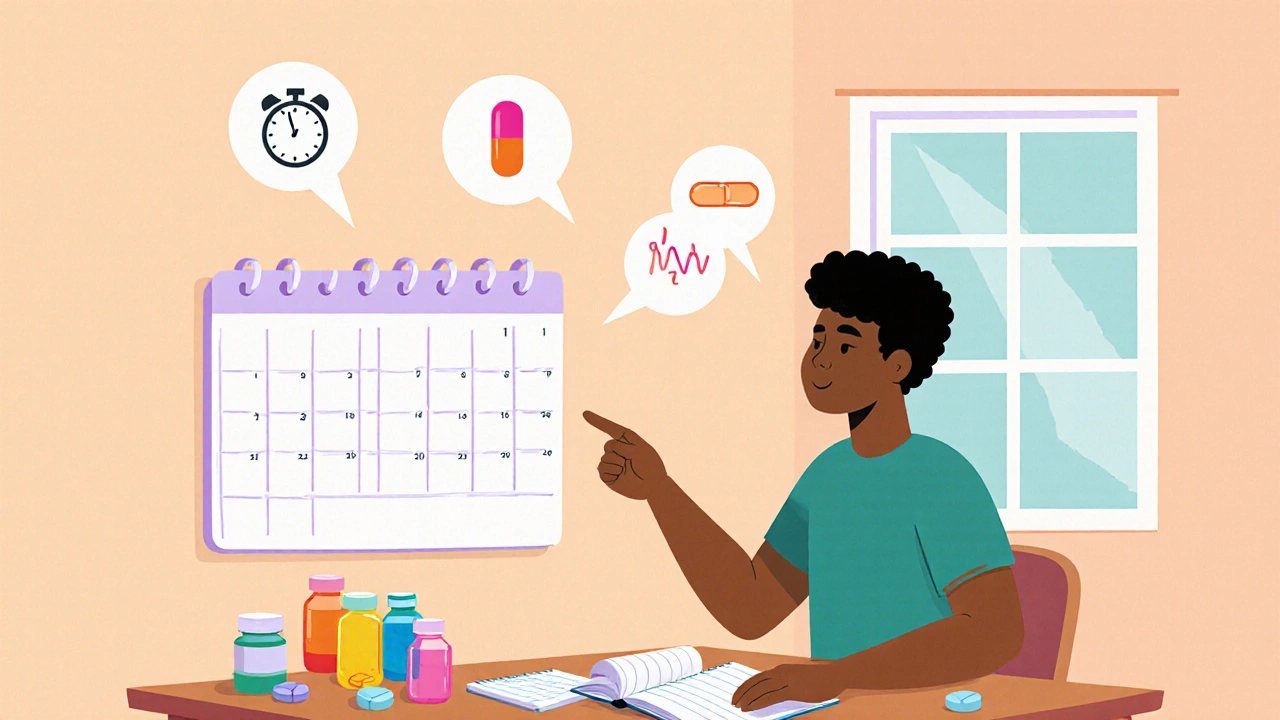Medication Side Effects
When dealing with medication side effects, unwanted reactions that happen after taking a drug, it helps to see them as part of a bigger picture. They encompass adverse drug reactions, any harmful or unintended response caused by a medication. At the same time, drug interactions, the way two or more substances affect each other’s action can amplify or mute those reactions, meaning that understanding interactions reduces the likelihood of side effects. Health systems rely on pharmacovigilance, the ongoing monitoring of drug safety after they hit the market to track patterns and alert providers, which directly supports patient safety, the practice of preventing harm to anyone receiving medical care. In everyday life, this means reading labels, asking pharmacists about potential reactions, and knowing that even common meds like bromhexine for cough or ticlopidine for heart health have specific side‑effect profiles that can differ by age or health condition. Recognizing this web of relationships lets you act before a problem surfaces and gives you confidence to discuss concerns with your doctor.
Why Knowing Medication Side Effects Matters
Most people think side effects are rare surprises, but they’re actually a predictable part of taking any drug. When you know that medication side effects can range from mild nausea to serious blood disorders, you can take steps to mitigate them. For instance, the article on bromhexine explains how this expectorant thins mucus but may cause stomach upset in sensitive users. The ticlopidine guide warns seniors about an increased bleeding risk, showing how age‑related factors shape side‑effect likelihood. Reporting any unexpected reaction to a health professional feeds into pharmacovigilance databases, helping refine safety warnings for everyone. Practical tips include keeping a simple diary of what you take and how you feel, checking if any new supplement could interact with a prescription, and using reputable online pharmacies that list full side‑effect tables. By treating side‑effect awareness as a routine part of medication management, you turn a potential hazard into a manageable element of your health routine.
The collection below pulls together dozens of focused articles that dive deeper into specific drugs, symptom checklists, and safety advice. You’ll find guides on managing tremors during pregnancy, strategies for reducing swelling after injury, comparisons of liver‑support supplements, and step‑by‑step instructions for buying cheap generic meds safely online. Each piece follows the same principle: give you clear, actionable information so you can recognize, prevent, and handle medication side effects before they become a problem. Scroll down to explore the full range of topics and equip yourself with the knowledge you need to stay safe and confident while taking any medication.
How to Tell If Your Symptoms Are From a Disease or a Drug Side Effect

Learn how to tell if a new health issue is a disease symptom or a medication side effect with practical steps, timelines, tools and checklists.
- October 24 2025
- Tony Newman
- 12 Comments
